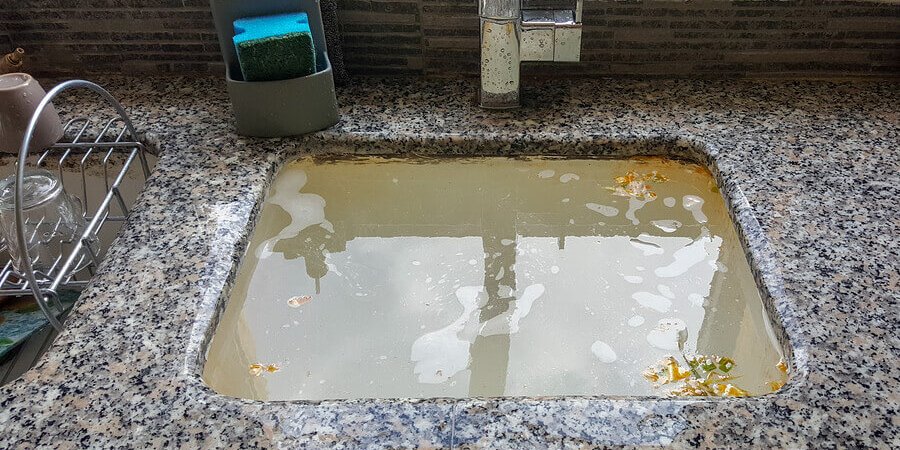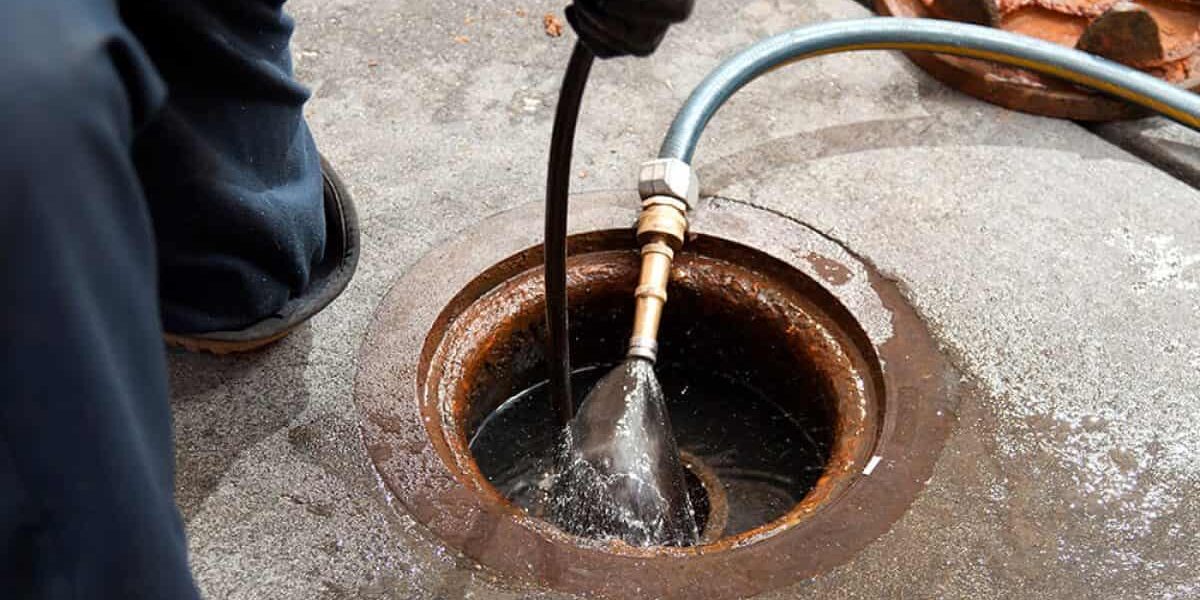We have noticed this article relating to Tips for Dealing with Clogged Drains and Sewer Lines directly below on the internet and figured it made good sense to relate it with you on this page.

Intro
Managing an obstructed drain can be an irritating experience, disrupting everyday tasks and potentially triggering damages to your property. Nevertheless, before connecting to pipes experts, there are actions you can take to resolve the concern on your own. In this guide, we'll discover do it yourself services and preventive measures to take on an obstructed drainpipe successfully.
Recognizing the Problem
The primary step in dealing with an obstructed drain is identifying the indications. Sluggish water drainage, gurgling noises, foul odors originating from drains, or water backing up prevail indicators of an obstructed drain. Recognizing these signs early can assist avoid additionally issues.
Typical Reasons For Blocked Drains
Comprehending the factors that add to drain pipes clogs is necessary for reliable resolution. Common perpetrators include hair, soap residue, oil, food debris, and international objects like hygienic products or paper towels. Tree roots attacking underground pipes can also trigger significant obstructions.
DIY Solutions
For minor obstructions, several DIY options can be reliable. Pouring boiling thin down the drainpipe can aid liquify grease and particles. Sodium bicarbonate and vinegar or a mixture of salt and cooking soda can serve as all-natural cleansers. Using a plunger or plumbing serpent to displace obstructions is another alternative.
Tools and Tools
Having the right devices handy can make DIY drain cleaning up extra reliable. A plunger is a functional tool for getting rid of blockages in sinks, commodes, and showers. A pipes snake or auger can get to deeper obstructions, while drainpipe cleaning chemicals can be made use of meticulously for persistent obstructions.
Safety nets
To prevent future blockages, adopting preventive measures is crucial. Mount drain guards or strainers to catch hair and debris prior to they go into the pipelines. Routinely flush drains pipes with hot water to dissolve oil buildup, and prevent dealing with grease or strong waste down the drain.
When to Call an Expert
While DIY solutions can solve minor clogs, particular indications suggest the need for expert support. Consistent blockages, foul odors despite cleansing initiatives, or several drains pipes supporting at the same time are warnings that necessitate expert treatment.
Selecting the Right Plumbing Service
When picking a pipes service, think about aspects such as experience, licensing, and customer evaluations. Choose a credible plumber with a track record of high quality handiwork and transparent rates practices.
Cost Factors to consider
The cost of specialist drainpipe cleaning company can vary relying on the severity of the obstruction and the plumbing's rates. Request quotes from numerous providers and inquire about any added fees to ensure transparency and avoid surprises.
Safety and security Precautions
When attempting do it yourself drain cleansing, prioritize security. Use protective gloves and eyeglasses to prevent contact with dangerous chemicals or germs. Never blend various drainpipe cleaning items, as this can create unsafe fumes.
Instance Studies
Real-life instances show the effectiveness of DIY remedies and the relevance of prompt professional intervention in fixing drainpipe obstructions.
Conclusion
By following the suggestions described in this guide, you can successfully deal with blocked drains pipes and stop future plumbing issues. Whether selecting do it yourself solutions or seeking specialist aid, timely activity is vital to preserving a healthy plumbing system and protecting the honesty of your home.
9 Ways You Can Clear a Blocked Drain
Blocked Drains from Hair
We’ve seen it all before, a build-up of hair that’s leads to a clogged drain. Most times it’s a moderately easy task to simply ‘remove the hair’, but if it’s not cleared up straight away – it can cause a lot of issues down the line.
Hair falling off the body in the shower or while getting ready over the sink and in the bathroom is one of the most common causes of blocked sinks and drains. But whilst it’s a common problem for many homeowners, there are ways you can fix your drain and put a long-term solution in place.
How to Fix Blocked Drains from Hair?
What to do: Small amounts of hair can be removed by pulling it out with gloved hands to avoid it getting worse. Drain cleaning devices such as drain spiders can also be purchased to help remove the hair from the drain. However, it’s important to be careful as some devices and cheap hair removal chemicals can make the problem worse.
It’s important to remove the hair before it gets clogged into the entry of the drain pipes. If you’re unable to reach the hair or the devices aren’t working as intended, it’s time to speak to a blocked drain specialist.
Blocked Drains from Plants and Dirt
Natural debris like trees, shrubs, dirt and leaves can be an issue for water drains, especially after spring and autumn. Your regular garden and drain maintenance that keeps the outdoor area looking great is also essential to the productivity of your water drains and pipes.
Leaves aren’t the only culprit, however – tree roots are notorious for growing underneath in search of water and as a result, will usually head straight to your drains.
How to Fix Blocked Drains from Plants and Dirt?
What to do: To prevent plants, leaves and dirt from blocking the drains, keep the outdoor area clear of fallen leaves and debris. If this mess is left long enough, it will cause your drains to become severely blocked.
Keep your trees well-watered so they are less drawn to the drains as a source of moisture and stay away from clogging plants where possible; like willow trees, oak trees, magnolias, boxwood shrubs, palm trees and gum trees.
While ensuring your yard is free from leaves and dirt is a great way to prevent build-up, sometimes the real issues lay under the surface. Tree roots can crack your drain pipes beneath your home – causing severe blockages and leaks. Specialist drain cleaning equipment can be used to clear the blockage and pipe relining technology can provide a long-term structural repair.
Blocked Drains from Grease Build-up
Like hair in the bathroom, grease and fat will build-up in the kitchen sink over time. These fatty substances are a very common cause of blocked drains and pipes and can be a nuisance to clear out.
Any grease waste or fatty substance that is washed down the sink will stick to the inside of the pipes and eventually build up to a point no liquid can pass through. It’s important to be aware that this grease doesn’t leave the pipes as easily as you would expect.
How to Fix Blocked Drains from Grease Build-up?
What to do: Avoid washing these fatty ingredients down the affected drain as much as possible. Grease that’s washed down the drain will cool and harden in the pipes.
A smart way to prevent this build-up of grease is to start collecting all glass jars that you purchase at the supermarket. Then, instead of pouring this oil or kitchen grease down the drain, put it in the small glass or plastic containers to discard with your garbage.
Blocked Drains from Toiletries
As more people get into the habit of disposing of toiletries down the drain, bigger problems are being caused in our pipes and sewers. Nappies and baby wipes are the two common issue items known to block drains after being flushed down the toilet.
Such items become immersed with water, they absorb the moisture and enlarge, quickly blocking access to water drains and pipes.
How to Fix Blocked Drains from Toiletries?
What to do: This way of disposing of toiletries is dreadful for the environment and everyone should be encouraged to dispose of toiletries the right way. In the home, these items should be taken out with your garbage, just as people should make use of the designated bins when using public changing rooms and toilets.
Blocked Drains from Heavy Rain and Storms
Throughout the wet season, drains will experience floods of water because of heavy rainfall. Because drains aren’t really designed to take the full impact of this weather, water build-up can be common in many Perth households.
When there is an overflow of rainwater in gutters and downpipes, there’s a good chance there’s a blocked drain that needs to be cleared out.
How to Fix Blocked Drains from Heavy Rain and Storms?
What to do: Ensure gutters and outdoor drains are cleaned during the wet season to prevent a build-up of leaves which will cause a bigger blockage. Problems caused by heavy rain and storms will usually require a plumber to help unclog and assist with the wastewater removal. If this is the case, contact them as soon as possible to prevent further build-up and potential flooding in your home and yard.

I discovered that piece of writing about Some easy tips to fix blocked drains while scouting around the web. Do you know about someone else who is involved in Tips for Dealing with Clogged Drains and Sewer Lines? Be sure share it. I value your readership.
This Post